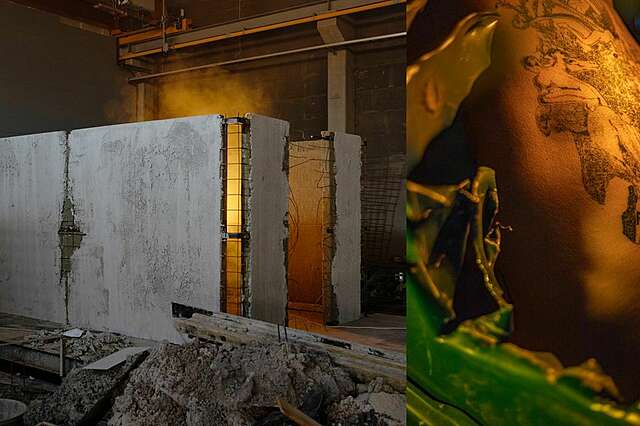Aleksi Lohtaja chosen as Archinfo’s social advocacy expert

Miina Jutila
A Doctor of Social Sciences and cultural policy researcher, Aleksi Lohtaja started his work at Archinfo at the end of September. At Archinfo, his main emphasis will be on architectural policy, lobbying, architectural education, and social advocacy.
Aleksi Lohtaja, Archinfo’s new social advocacy expert, hails from the University of Jyväskylä, where he continues to work as a part-time culture policy researcher and lecturer until the end of the year. Social advocacy is one of Archinfo’s main operational focus areas – we use it to raise the profile of architecture in society and support the development of the built environment towards a more sustainable future.
The key framework for the above is Finland’s new architectural policy programme (Apoli 2022–2035). At Archinfo, Lohtaja will take responsibility for raising public awareness of Apoli and acting as the Finnish contact for the European Commission’s New European Bauhaus initiative. In addition, he will participate in architectural education networks and, for example, acts as part of the steering group for Finland’s Architects Declare movement.
Lohtaja obtained his doctorate in 2022 with his dissertation Architecture as Spatial Configuration of Politics. At Archinfo, he will continue on the same subject matter, aiming to firmly integrate architecture and the built environment into cultural policy discourse.
“All policy is now connected to the built environment, one way or another. The environmental crisis, the Covid pandemic, and the challenging questions of reconstruction raised by the war in Ukraine are topical examples of how architecture is necessary for solving societal problems,” says Lohtaja.
“In my opinion, architectural policy should be approached as more than just a sector of art and culture policy – it allows us to outline society’s social, cultural, and environmental sustainability in a larger sense.”
New focus areas for architectural policy
Finland is a long-time pioneer in architectural policy and architectural education for children and the youth. The country’s new architectural policy programme Apoli, municipalities’ local policy programmes, and new EU-level themes of architecture as a tool for social development serve to further highlight the social focus areas of Finnish architecture.
Archinfo’s current social advocacy and communication projects seek to promote a comprehensive culture of construction where environmental, economic, aesthetic, and social aspects intersect and supplement each other. By bringing forward new perspectives that speak to both professionals and the general public, Archinfo aims to increase civic debate regarding the built environment.
“By actively taking the initiative, we wish to increase awareness of the cultural and social importance and sustainability of architecture. The deep cultural policy expertise and active participation of Lohtaja in public discourse about architecture are a great fit for our goals,” says Katarina Siltavuori, director of Archinfo.
In Aleksi Lohtaja’s view, there’s an interesting shift happening in architectural policy. “It highlights Finland’s long, internationally renowned architectural policy focus of social responsibility and democracy in new ways, especially in the light of ecological questions regarding the built environment. It’s a privilege for me to witness and further this change as part of the Archinfo team,” says Lohtaja.
In autumn 2022 Lohtaja works with Archinfo a few days per week and will continue full-time in 2023. He succeeds in the position his predecessor Eeva Astala who now works as the executive director of the Cultural Heritage Education Society.


